“This is not a moment. This is a movement.”
All captions in the photo essay below were quotes heard at the climate strike on March 15. The quotes do not necessarily bear any relation to the photographs nor the subjects within them.
Opinion: We will not wait for tomorrow
On Friday, March 15, nearly one million students skipped or walked out of school to protest inaction on climate change internationally. According to The Guardian, this included two-thousand individual protests in 125 countries and on all seven continents. Students from both Poudre and Thompson School Districts teamed up to hold a climate strike in Library Park, Fort Collins, drawing hundreds of students and plenty of community members for live music, chanting, and speeches about the issue.
However, in my opinion, the strikes that occurred across the world today stood for far more than climate change. They stood for student voice, the value of passion, and the change that a single person can make by standing up for what they believe in.
Sure, it sounds cliché. But if you have read the news recently, you have probably read the name Greta Thunberg. The sixteen-year-old from Sweden began protesting outside the Parliament building in Sweden in 2018, skipping school to demand that her country’s leaders follow through on their promises to reduce carbon emissions following 2015’s Paris Agreement. Between September of 2018 and today, she has inspired student strikes across the world to raise awareness about the issue. And just the day before the strike, on March 14, Thunberg was nominated for the Nobel Peace Prize for “launching a mass movement, which [political leaders in Sweden] see as a major contribution to peace.”
That mass movement is what I saw today when I arrived at Library Park at 11:50 a.m., having left school after Advisory. My friends and I carpooled to the strike, singing along to SWMRS on the way, pinning signs to each other’s shirts and discussing our protest war stories. It has become a routine—a way of coping with the stories we constantly see swirling around us that deal in negativity and discrimination and hate. We feel called to strike because we feel powerless otherwise, because, at eighteen years old, we have just barely reached the point of being able to make legal change.
After arriving at the strike, we were immediately surrounded by friends. Half were people we knew, faces we had seen at previous marches and walkouts and football games. That is the beauty in student-led movement. It appears in moments and events like these, but it is carried by the daily interactions we have with one another. Student movements are passed in the form of flowers handed out in school hallways and green flagging tape in class. They are passed by word of mouth and by social media, the adopted communicators of those in separate places with the same ideas.
The other half were strangers we did not yet know. But, by the time we had listened to countless speakers together, sung along to “This Land is Your Land” and “What A Wonderful World” together, shouted about democracy together, we were friends. I met three young girls from Polaris Middle School, who stood with their hands clasped together and danced to each song unabashedly. I met college students who wanted pictures of my poster and to know where I got my camera bag. I met adults who thanked me for coming, who wanted to know why I was in attendance and what started my passion for protest.
The answer to that question is that I have had passed down to me, by my parents and mentors and best friend and little brother, the strongest of beliefs that no action is too small. I have eliminated feelings of hopelessness because they do no good and make nothing better, only serving as an excuse for inaction. I have allowed myself to believe that my walking out inspires some other little girl out there to know she too can have a voice, and that by doing so, I am showing the future generation what the present can be.
By the end of the strike, having been prompted to think about why people would possibly not support student activism, I came to a conclusion. As children grow up, they are so often told, “You can be anything you want to be!” The options are numerous, spanning doctors to lawyers to astronauts. All those things take place in the future.
And now, students are being what they want to be, nay, need to be—activists. They are taking power in the present, not waiting until they have finished high school or college or met any other artificial milestone. The adults who told their children for so long that they can be anything are realizing that that anything is flagrantly outside what the adults wanted all along.
Today’s youth are realizing that the decisions made right now have consequences for them both immediately and in the future. They have to live or die by them in a much more authentic way than the adults making the calls. In effect, teenagers are taking not just the future, but the present.
So maybe, instead of telling children that they can be president, we should try telling them they can be the present instead. Today’s strikes show that by allowing students to empower themselves, they change our world. And they do not wait for tomorrow.
Your donation will support the student journalists of Fossil Ridge High School. Your contribution will allow us to purchase equipment and cover our annual website hosting costs.

Despite all the warnings given to her, senior Isabella Mahal filled her schedule with AP classes and a single TA period. Many of these classes were only open to seniors and fascinate her, such as AP Literature and AP World History, so not having an off period doesn’t bother her. It isn’t just her...



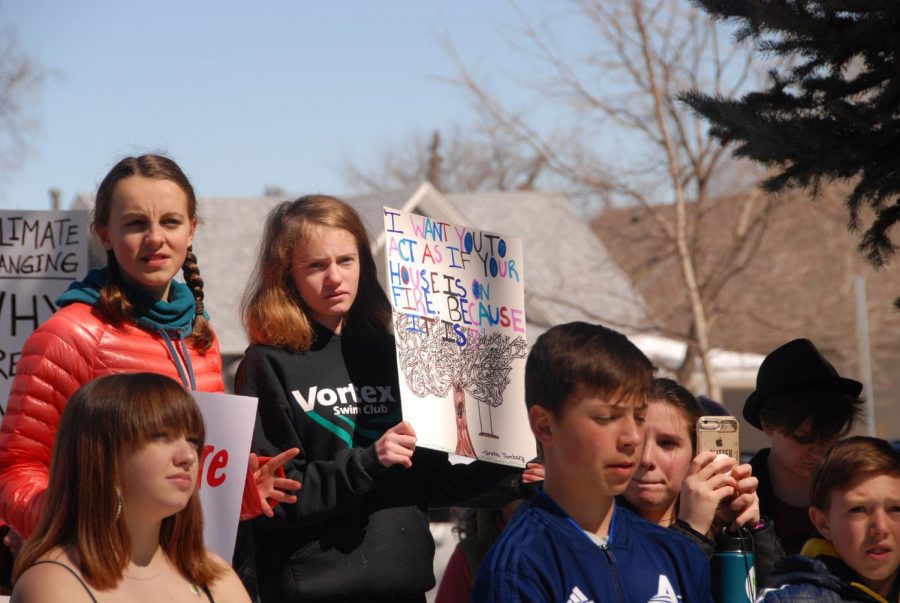
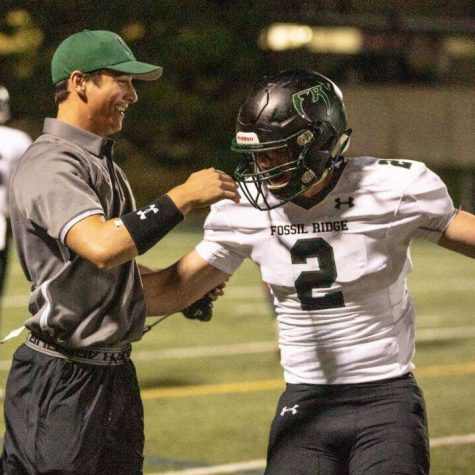


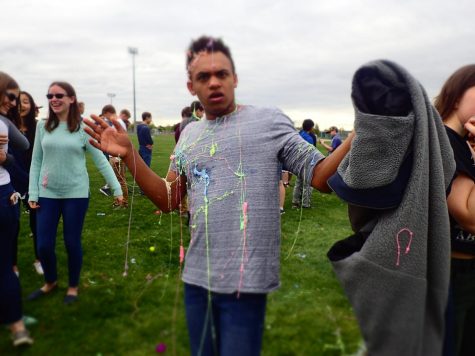
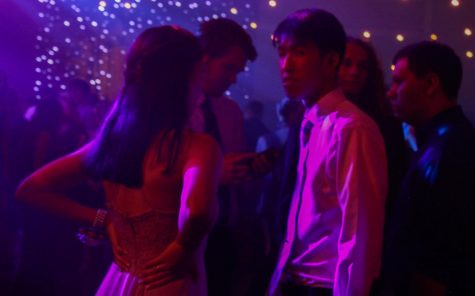


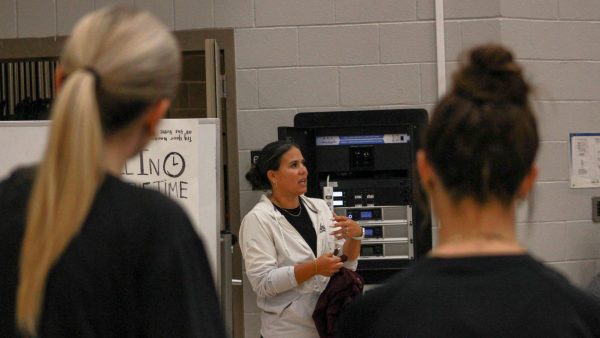

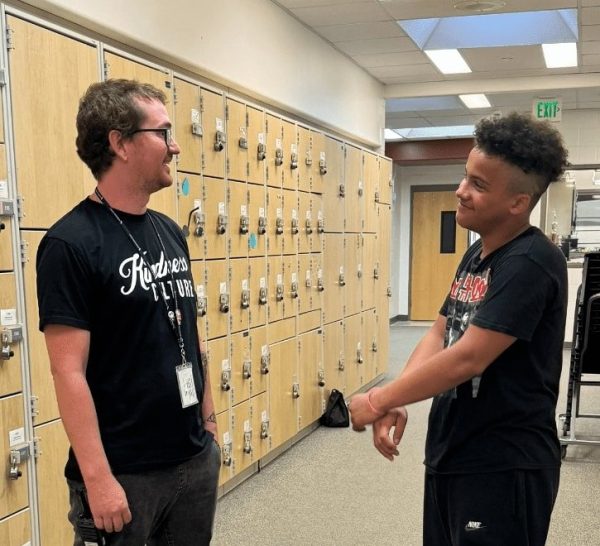
Carson Grant Michel • Mar 28, 2019 at 1:42 pm
no more farting cows!
Thade George • Mar 24, 2019 at 6:51 pm
https://www.google.com/url?sa=i&source=images&cd=&cad=rja&uact=8&ved=2ahUKEwifjKyWhpzhAhWJzIMKHT0HDW0QjRx6BAgBEAU&url=http%3A%2F%2Ficecap.us%2Findex.php%2Fgo%2Fnew-and-cool%2FP222%2F&psig=AOvVaw24APOxsVoKXQ6yg1lnQlY8&ust=1553560465430651
This is the ice core graph of Greenland. They determine the temp of older ice cores and get a graph to show the temp. Even though this is just Greenland and not the rest of the world, they can figure out global temps, co2, ect from ice cores, so they can help show what overall climate was for the past thousands of years.
The general trend over the last few thousand years is that the earth is actually getting colder. When it cools or gets hotter, the temp spikes are large. I just think we are on a upward spike right now.
Global warming exist, but so does global cooling. The “Global Warming Crisis” is a blown up thing and its not as big of a problem as we all think. Some sources say volcanic activity and animals produce more emissions then industry. So I agree, lets keep our environment healthy. Pick up trash, keep our water clean and maybe even reduce the amount of forest we cut down, but damaging the economy and banning cows is not something you should be protesting for. When you can come up with proof that we will all die in 12 years from a runaway greenhouse effect that will cook us alive tell me and I will happily stop burning stuff for fun and do my part in reducing carbon emissions, but until then the proof is slim and we just happen to be on a upward temperature spike. No one is dying, the earth is doing fine, lets worry about more current problems like the immigration or the economy instead of destroying the economy by a green crusade that will benefit no one, except for the cows of course XD.